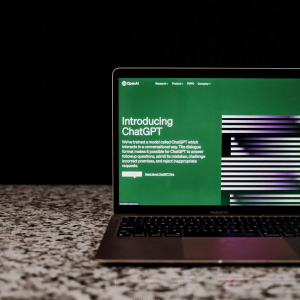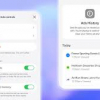CONTACT US
info@bidaiondo.com

Users' private conversations with ChatGPT are encrypted. And despite this, hackers are reading them

ChatGPT conversations are encrypted, but they do not prevent this type of attack from being carried out
Google's conversational chatbot, Gemini, is not reached because it uses a different architecture
ChatGPT has become part of the lives of millions of people who use it daily for different tasks ranging from preparing for job interviews to summarizing meetings. But how exposed are your conversations? We have known for some time that OpenAI can use chat content to improve its AI models, unless chat history is disabled or the paid version of ChatGPT Enterprise is used.
The above means that some employees of the company led by Sam Altman have the possibility of accessing your conversations for technical or security purposes. This is why it is so important not to share confidential information, but rather to tell Samsung that it ended up prohibiting the use of ChatGPT among its employees. Beyond this, there are other ways in which conversations can end up in the hands of a third party, for example, a cybercriminal.
The cyberattack that compromises the security of ChatGPT
Imagine that you are in a cafe using ChatGPT from your laptop connected to the public Wi-Fi network. This scenario could be favorable for an attacker to use certain elements within their reach to try to deduce the chatbot's responses. All this, without you realizing it. The information about the attack that we will explain below comes from an interesting study by the Offensive AI Research Laboratory at Ben-Gurion University in Israel that is basically developed in four steps:
Intercept the victim's traffic
Filter packets to find ChatGPT responses
Reveal token length
Infer ChatGPT response using an LLM
If you are a ChatGPT user, you will surely have noticed that the chatbot progressively sends you the response. We can also explain this process in the following way: the model, GPT-3.5 or GPT-4, transmits the tokens to your computer as it generates them. Now, although this sequential transmission is encrypted, it opens the door to using a type of attack known as Side-channel attack that can reveal the length of the tokens to infer information.
The attacker's challenge at this point is to intercept the data sent between the OpenAI servers and your computer, something that can be achieved with a Man-in-the-Middle attack. Once the malicious actor has compromised network security, they will filter traffic by IP address and analyze packets to detect an incremental pattern in order to discover packets related to ChatGPT responses.
You can then identify the length of the tokens using the packet sizes observed earlier. Here, precisely, the highest level of difficulty occurs: since a token can represent a unit of text as short as a character or as long as a set of words, it is necessary to resort to an additional solution to interpret them and infer the answers. The researchers' solution has been to use an LLM for this task.
We are talking about a specially trained long language model that is capable of analyzing the length of the tokens and predicting the responses generated by ChatGPT quite accurately. The results may vary, but in the tests the model was able to infer 55% of all responses with high precision (the words may change slightly, but the meaning of the sentence slightly). Furthermore, 29% of them had perfect accuracy.
Although this is an attack that requires certain sophisticated elements to execute, it never hurts to keep in mind the extent to which our data can end up being exposed. It should be noted that this technique, according to the researchers, not only works with ChatGPT, but also with other artificial intelligence bots such as Copilot that send the tokens sequentially. Google's Gemini is not reached, precisely because it has a different architecture.
Last news
Llega Ecommerce Moment Barcelona 2026: casos reales sobre innovación, retail media, liderazgo y nuevos hábitos de consumo

La Comisión Europea exige medidas urgentes a Meta para que los asistentes externos vuelvan a Whatsapp

online trading systems.
 We show you the best way to market products and services online, through a professional service of installation, management and maintenance of your virtual store
We show you the best way to market products and services online, through a professional service of installation, management and maintenance of your virtual store
We program to suit you
 We help you achieve operational excellence in all your business processes, whether they are production, logistics, service or office processes. In addition, we assure you to maintain continuous improvement in your management.
We help you achieve operational excellence in all your business processes, whether they are production, logistics, service or office processes. In addition, we assure you to maintain continuous improvement in your management.
Bidaiondo Articles
We take a look at how ChatGPT's new advertising works, which is already live.

ChatGPT has finally launched advertising on its platform. Relatively quietly (considering the importance of this development for the future of its business), Sam Altman's company has already rolled out ads on ChatGPT, although for now they will be limited to the United States. This test launch is intended for adult users logged into the Free and Go plans. For the time being, the Plus, Pro, Business, Enterprise, and Education plans will not se...
The two sides of Moltbook, the social network exclusively for AI agents: entertainment and risks

A new social network has just been launched, and it's nothing like you'd expect. Moltbook is a platform similar to Reddit, but its users are none other than AI agents that debate, share, and vote, while humans are welcomed as mere observers. What is Moltbook? Last week we told you about OpenClaw, a proactive AI agent capable of taking control of your computer to help you perform tasks, which has become the talk of the town. Well, it seems...

ABOUT US
FILES

Welcome to Bidaiondo, dear user
BIDAIONDO SL, as the party responsible for the website www.bidaiondo.com, uses its own operating cookies and those of third parties of an analytical nature to allow the use of the website, analyze our services and show you information related to your preferences based on a profile drawn up from of your browsing habits (for example: pages visited). Please bear in mind that, if you do not activate some types of cookies, such as operational and analytical cookies, your experience of using this website may be affected. You can obtain more information and configure your preferences in the CONFIGURE option that appears below, you can reject cookies in the REJECT AND CLOSE option or accept all cookies and continue browsing in the ACCEPT AND CLOSE option.
So do you want to know more?
Data privacy seems important to you, and it is to us too. We store cookie data for 13 months. If you want to know more, you can visit our pages Privacy Policy y Cookies policy. Do you know what cookies are? Cookies are files that are used by virtually all websites. When browsing our page, they are installed in your browser or device to ensure that the website works correctly and store information about your visit. The data provided by cookies treat the user anonymously and in no case do they store personal information.
The data collected by the cookies we use are:
- Addresses IP
- References of visited pages
- References of downloaded files
- The website itself www.bidaiondo.com
- https://www.moz.com
- https://secure/europeanssl.eu

 Spanish
Spanish













